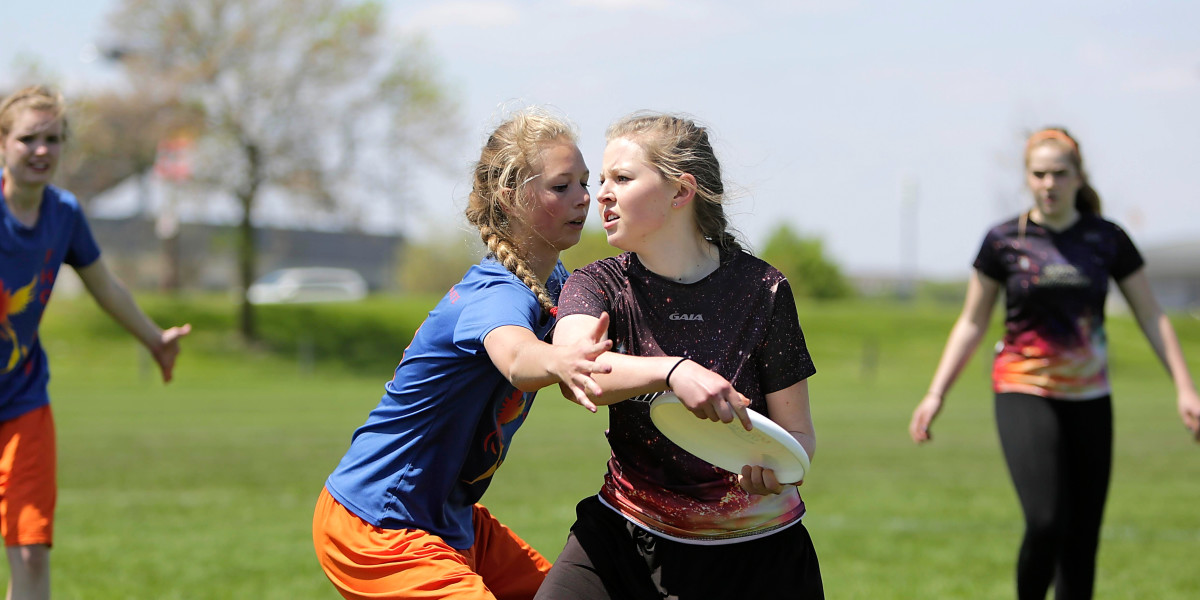
Want to coach great throwers? Start your throwing practice by redefining success in terms of learning and controlling the flight of the disc. Then, look for ways to keep moving the bar up for your players as they progress.
Like most ultimate coaches, I spend a lot of time early in the season and within each practice helping my players become better throwers. The players on my team have different sets of experience every year; some are very talented throwers and some are brand new to the skill. What I’ve realized over the years is that the mindset they bring to this endeavor greatly influences how fast and how much they can learn. My main focus as a coach is to empower players to see that with just a bit of persistence, consistent proper practice and the right mindset, they can greatly improve their throwing skills very quickly.
The problem that many new players face is the plateau they reach after getting just a bit of progress. They get a bit of a forehand and a passable backhand and stop improving. They judge their success as a thrower based on whether someone on their team caught the pass. They often have a hitch in their throwing mechanics, funky pivot and balance issues, or a grip that won’t be sustainable with any kind of wind. These players are hesitant to change because they feel like it will make them worse. They become predictable and rote in their movements and so are liable to be easily marked.
There are many things I look for to help these throwers move towards mastery, including all the things you might expect. I’d check for a solid grip, knowledge and control of edging, and stable balance. But most importantly, I’m looking for a growth mindset.
The Growth Mindset
If you’re not familiar with Carol Dweck’s work on growth vs. fixed mindsets, watch this Ted Talk. To sum it up briefly: The best and most successful people have a growth mindset in that they believe they improve themselves through hard work. Those who believe that they are “fixed” on a given skill are doomed to stay stuck at that level because they don’t believe that they can improve further. This has real impact when teaching new players how to throw a disc because one look at an experienced player’s throws will convince them that they’ll never be as good. The newbie can become satisfied with merely completing the pass because they see that as success, or quit before they even get a chance to succeed. They essentially set the bar too low in their mind.
If you’re looking to instill a growth mindset into your throwers you need to do three things:
- Set the bar low initially so that players can see some progress, which helps build the belief that they can continue to improve. It’s easy to overwhelm a player with feedback. Help them see the bar that’s right in front of them so that they don’t quit too soon. Remember to reward the effort to improve – not the results.
- Then, set the bar high enough to encourage players to work towards the goal even in the face of early failures. Completed passes are not the goal of a good growth mindset thrower. The real goals are pinpoint accuracy and true control of the disc’s flight path.
- You need to be ready to keep raising that bar as soon as they have cleared it. That way there is always an upcoming challenge. Whether it’s a more precise cut, catch, throw or footwork, there’s always a next level for a great learner. This is the point of Tommy Li’s article from the learners perspective.
Through trial and error you’ll start to notice that there are some common things to look out when working with newer throwers. I’ll throw out two examples of mistakes that I’ve seen (and done) a lot myself.
The “identity trap” and the power of praising effort
One of your new players may instantly pick up the skill you’re teaching. That’s always a fun problem to have. You might make the same mistake that I’ve made countless times by exclaiming with all the excitement of a coach envisioning his next superstar player: “You’re a natural!”
The problem with these kind of messages is that they are reinforcing the fixed mindset and identity. Dweck’s research shows that telling students that they are good at a skill has a limiting effect on their desire to keep working on growth. Instead, try praising a player’s effort. Celebrating an athletic attempt has a positive effect as it fosters the growth mindset and allows some control over the player’s performance. Work hard and good things will happen is the underlying message.
Coaching the player who just doesn’t seem to get it
When coaching players with less “natural” abilities, we can often fall into the opposite trap of letting our expectations coach the player. This player struggles with everything, so we naturally overpraise them and give them a pass on the harder levels of achievement. This too has an impact on a player in surprisingly powerful and potentially very limiting ways. Here’s an amazing podcast about the power of expectations on a young person. I can almost guarantee that this story will blow your mind and change the way you coach. Give them the respect of continuing to believe that they can make improvements and holding that goal in front of them. Their progress will be that much sweeter.









Comments Policy: At Skyd, we value all legitimate contributions to the discussion of ultimate. However, please ensure your input is respectful. Hateful, slanderous, or disrespectful comments will be deleted. For grammatical, factual, and typographic errors, instead of leaving a comment, please e-mail our editors directly at editors [at] skydmagazine.com.